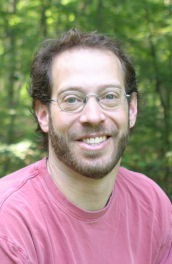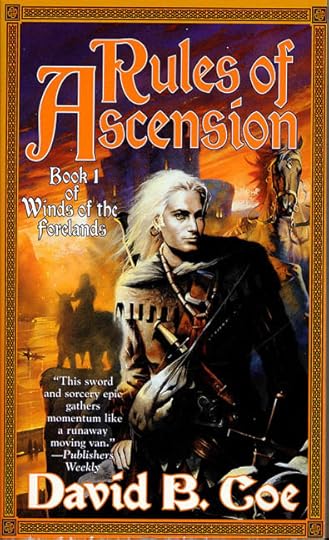Guest Post: David B. Coe
Since this blog is all about influences on writing, and since I have developed numerous writer friends over the years, I figured why not put the two together? So, this first guest post on the subject of influences comes from one of my best writer friends and a fantastic epic fantasy author, David B. Coe. He's been in this game for a long time and has plenty of wonderful thoughts on the subject. He also blogs about writing and writing business over at Magical Words. Take it away, David:
 What influences us when we write? What external factors shape our characters, our settings, our narratives? When Stuart approached me about guest blogging on the subject, my initial thought was that I have no idea what shapes my thinking on any particular book or story.
What influences us when we write? What external factors shape our characters, our settings, our narratives? When Stuart approached me about guest blogging on the subject, my initial thought was that I have no idea what shapes my thinking on any particular book or story.
But the more I think about my recent novels, the more I realize that my work is very much a product of social and political trends I see in today's world.
When I started Rules of Ascension, the first book in my Winds of the Forelands quintet, I had in mind to write a series that entertained with magic and political scheming and romance, while also delving into issues of race and prejudice. I studied history, and had long been interested in racial history and ethnic identity. But I was also looking to write a book with cool magic in it. And, after spending a couple of weeks visiting Wales and exploring the ruins of castles at Caernarfon, Beaumaris, and Conwy, I knew that I wanted to write something with lots of castle intrigue.
That is the book I thought I was writing with Rules — something fun, filled with dukes and castle sieges and spells. But I wrote that book in 2000 and 2001, and had just started work on Seeds of Betrayal, the second book in the sequence, when the 9/11 attacks occurred.
Without planning it, in a way without even realizing it, I allowed the  aftermath of 9/11 to shape the rest of that series as well as the three volumes of the Blood of the Southlands, which were a follow-up to the Forelands books. I don't want to give away too much of the plotting, but it's enough to say that on one side of the racial divide were people who tried to navigate the waters between acquiescing in their own victimization and giving in to violent extremism. At the same time, the other side vacillated between tolerance of those who differed from them and cruel repression rooted in irrational paranoia.
aftermath of 9/11 to shape the rest of that series as well as the three volumes of the Blood of the Southlands, which were a follow-up to the Forelands books. I don't want to give away too much of the plotting, but it's enough to say that on one side of the racial divide were people who tried to navigate the waters between acquiescing in their own victimization and giving in to violent extremism. At the same time, the other side vacillated between tolerance of those who differed from them and cruel repression rooted in irrational paranoia.
Of course, all of this happens within the context of magic and a quasi-medieval political system. It is quite possible to read the five Forelands books and the three Southlands books without ever seeing in the narrative a post-9/11 parable. On the other hand, if you're looking for it, it's certainly there.
And I want to say again that it was not something I planned. The events of 2001-2003 influenced profoundly the writing I did in that period, but it really wasn't until I was concluding the fourth book that I became fully aware of that influence. Most of it crept in, fed by my subconscious, by the yin-yang of my own emotions: my concerns for the safety and security of my family, my friends, my country, and, simultaneously, my disgust with the jingoistic rhetoric driving policy makers on both sides of the aisle in Washington.
I am a historian as well as a writer. I have used works of fiction, as well as other art forms, as source material for historical research. I know as well as anyone that it is nearly impossible for an author — or an artist of any other sort — to step completely out of his or her time when creating. All literature is, to some degree, a product of the climate in which it was written. Sometimes those contemporary influences are quite obvious — think of Huckleberry Finn, Uncle Tom's Cabin, 1984. At other times, the influences are far more subtle; Lord of the Rings comes to mind.
But though I know as a historian to consider these factors when reading books and stories from another era, I have to admit that it is odd to see my own fiction shaped by the history around me, particularly since I was largely oblivious of that influence as it was being exerted. We are, all of us, products of our culture, our society, and, yes, the history to which we bear witness. My books bear the marks of other novels I have read, of movies and plays I have seen, of music I listened to while writing. And the most important novels I have published thus far in my career also carry within them reminders of the most searing, tragic event our nation has experienced in the last half century. I suppose the most surprising thing about this is that it took me so long to recognize the impact of that day on the work that came after.



